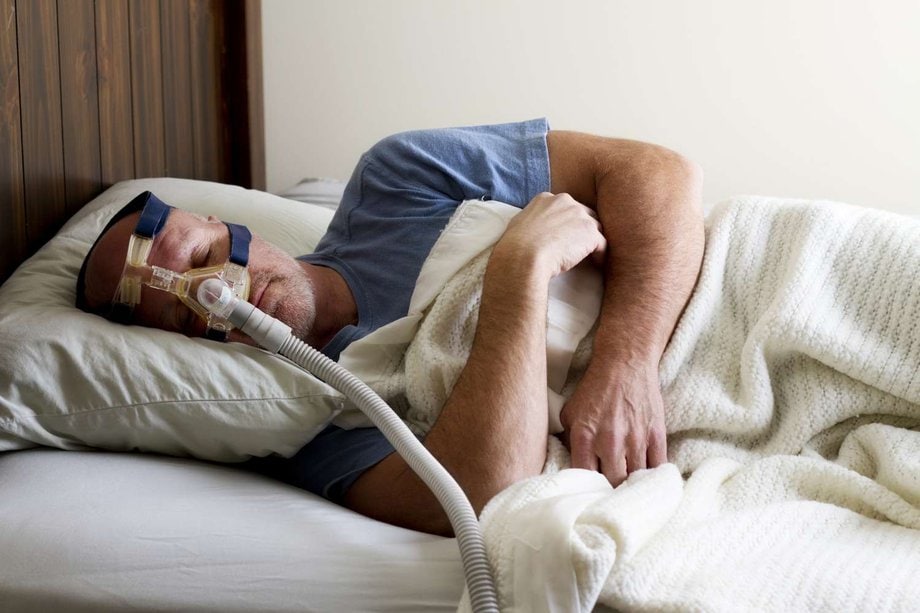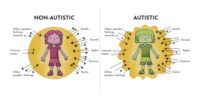Why Should You Discuss Sleep Apnea With Your Family And Support System?

Sleep apnea is a common sleep disorder that affects millions of individuals worldwide. It is characterized by recurrent episodes of interrupted breathing during sleep, resulting in fragmented and poor-quality sleep. While it may seem like a personal health issue, discussing sleep apnea with your family and support system is crucial for several reasons.
Firstly, it is essential to educate your loved ones about the impact of sleep apnea on your overall health and well-being. By sharing your symptoms and experiences, you can help them understand the challenges you face and the importance of seeking medical help and diagnosis.
Moreover, open communication and a supportive environment are vital in managing sleep apnea treatment effectively. Family involvement can also contribute to exploring lifestyle changes and behavioral strategies that can improve sleep quality.
Lastly, advocating for awareness and support for sleep apnea in your community can help others who may be struggling with this condition. Discussing sleep apnea with your family and support system is an important step towards better understanding, management, and support.
Key Takeaways
- Discussing sleep apnea with family and support system is crucial for effective management and treatment.
- Educating loved ones about the impact of sleep apnea on health helps alleviate misconceptions and stigmas.
- Involving family in lifestyle changes and strategies improves sleep quality for individuals with sleep apnea.
- Advocating for awareness and support in the community helps others understand the importance of early diagnosis and treatment.
Understand the Impact of Sleep Apnea on Your Health
Understanding the potential implications of sleep apnea on one’s overall health is vital in order to properly address and manage this condition.
Sleep apnea is a chronic disorder characterized by pauses in breathing during sleep, resulting in disrupted sleep patterns and decreased oxygen levels in the body.
This can lead to a range of health problems, including excessive daytime sleepiness, decreased cognitive function, and increased risk of cardiovascular diseases such as hypertension, heart attacks, and stroke.
Additionally, sleep apnea has been linked to an increased risk of developing diabetes, obesity, and depression.
By discussing sleep apnea with one’s family and support system, individuals can raise awareness about the condition and its potential consequences, encouraging support and understanding from loved ones while also ensuring access to necessary medical interventions and treatment options.
Educate Your Family and Support System about Sleep Apnea
To ensure comprehensive care, it is important to educate family members and support systems about sleep apnea. By providing them with accurate information, individuals can gain a better understanding of the condition and its impact on their loved one’s health. This knowledge can foster empathy and support, leading to increased emotional and practical assistance.
Educating family members and support systems about sleep apnea can also help alleviate any misconceptions or stigmas associated with the condition. It allows for open communication and encourages the involvement of loved ones in the treatment process.
Additionally, educating family members and support systems can promote early detection of sleep apnea in other family members, as it is known to have a genetic component. By discussing sleep apnea, individuals can strengthen their support network and improve their overall well-being.
Sharing your symptoms and experiences with your loved ones can foster a greater sense of empathy and support, enhancing their understanding of the impact of sleep apnea on your health.
By openly communicating about your symptoms, such as loud snoring, frequent pauses in breathing during sleep, and daytime sleepiness, you can help your family and support system recognize the seriousness of this condition.
Sharing your experiences, such as feeling tired despite getting a full night’s sleep or waking up with a headache, can provide valuable insights into the daily challenges you face.
Additionally, discussing the potential complications of untreated sleep apnea, such as high blood pressure, heart disease, and stroke, can help your loved ones appreciate the importance of seeking appropriate treatment.
By sharing your symptoms and experiences, you can encourage your family and support system to actively engage in your journey towards better sleep and improved health.
Discuss the Importance of Seeking Medical Help and Diagnosis
Seeking medical help and receiving a proper diagnosis are crucial steps in managing the impact of sleep apnea on one’s health. It is important to discuss these steps with your family and support system to ensure their understanding and support.
When discussing the importance of seeking medical help and diagnosis, consider the following:
- Explain the potential risks and complications associated with untreated sleep apnea, such as high blood pressure, heart disease, and stroke.
- Discuss the benefits of early intervention and treatment, which can improve sleep quality, reduce daytime sleepiness, and enhance overall well-being.
- Share information about the various diagnostic methods available, including sleep studies and monitoring devices.
- Emphasize the significance of a proper diagnosis in determining the most appropriate treatment options, such as continuous positive airway pressure (CPAP) therapy or oral appliances.
By discussing the importance of seeking medical help and diagnosis, you can ensure that your loved ones understand the gravity of the situation and provide the necessary support throughout the diagnosis and treatment process.
Encourage Open Communication and Supportive Environment
Encouraging open communication and creating a supportive environment facilitates the understanding and assistance needed for individuals with sleep apnea.
By discussing sleep apnea with family and support systems, individuals can educate their loved ones about the condition, its potential risks, and the necessary lifestyle adjustments. Open communication allows for the sharing of concerns, experiences, and information, fostering empathy and understanding among family members.
Furthermore, a supportive environment provides emotional and practical support, which can alleviate the burden of managing sleep apnea. Loved ones can actively participate in the individual’s treatment journey, such as accompanying them to medical appointments or helping them adhere to treatment plans.
Moreover, discussions about sleep apnea can lead to increased awareness within the family and support network, promoting early detection and intervention for other potential cases.
Seek Assistance in Managing Sleep Apnea Treatment
Collaborating with healthcare professionals and attending regular appointments can assist in effectively managing sleep apnea treatment. Seeking assistance from medical experts ensures that the condition is properly diagnosed and the most suitable treatment plan is implemented.
Here are three reasons why involving healthcare professionals in the management of sleep apnea is crucial:
- Accurate diagnosis: Healthcare professionals, such as sleep specialists, can perform comprehensive sleep studies to accurately diagnose sleep apnea. These tests measure various parameters during sleep, including breathing patterns, oxygen levels, and brain activity, providing a clear picture of the severity of the condition.
- Personalized treatment: Collaborating with healthcare professionals allows for personalized treatment plans tailored to individual needs. They can recommend appropriate interventions, such as continuous positive airway pressure (CPAP) therapy, oral appliances, or lifestyle modifications, based on the severity and specific characteristics of the sleep apnea.
- Monitoring and adjustments: Regular appointments with healthcare professionals allow for ongoing monitoring of the treatment’s effectiveness. They can assess the progress, make necessary adjustments, and address any concerns or side effects that may arise, ensuring optimal management of sleep apnea.
Explore Lifestyle Changes and Behavioral Strategies as a Family
Exploring lifestyle changes and behavioral strategies as a family can contribute to the overall management and improvement of sleep apnea.
It is important to involve the entire family in the process of making necessary lifestyle adjustments and implementing behavioral strategies to ensure a supportive environment for the individual with sleep apnea. By involving family members, everyone can gain a better understanding of the condition and its impact. This shared knowledge can help to create a sense of empathy and support, fostering a more conducive environment for implementing changes.
Additionally, involving the family can help in identifying potential triggers or patterns that may exacerbate sleep apnea symptoms. Collaborating as a family can also make it easier to establish and maintain healthy habits, such as regular exercise, a balanced diet, and consistent sleep schedules.
Ultimately, by working together, the family can play a crucial role in the successful management of sleep apnea.
Advocate for Awareness and Support for Sleep Apnea in Your Community
Promoting awareness and support for sleep apnea in the community is crucial for fostering a better understanding of the condition and its impact on individuals. By advocating for awareness and support, individuals can help dispel misconceptions surrounding sleep apnea and encourage early diagnosis and treatment.
One effective way to raise awareness is through educational campaigns that target the general public, healthcare professionals, and community organizations. These campaigns can provide information about the signs and symptoms of sleep apnea, as well as the potential health consequences if left untreated.
Additionally, advocating for support services such as support groups and resources for individuals with sleep apnea and their families can help create a sense of community and provide much-needed support.
By working together as a community, individuals can make a significant impact in improving the quality of life for those affected by sleep apnea.
Frequently Asked Questions
How does sleep apnea affect your overall health and well-being?
Sleep apnea can have significant impacts on overall health and well-being. It is associated with increased risks of cardiovascular disease, hypertension, diabetes, and cognitive impairment, which can all negatively affect an individual’s quality of life.
What are some common symptoms and experiences of individuals with sleep apnea?
Common symptoms and experiences of individuals with sleep apnea include loud snoring, daytime sleepiness, morning headaches, difficulty concentrating, irritability, and frequent awakenings during the night. It is important to discuss these symptoms with your family and support system to raise awareness and seek appropriate treatment.
How can I educate my family and support system about sleep apnea?
Educating your family and support system about sleep apnea is crucial to ensure understanding and support. Provide them with information about the condition, its symptoms, and available treatments. Encourage open communication and discuss the impact of sleep apnea on your overall well-being.
What are the potential risks and consequences of not seeking medical help and diagnosis for sleep apnea?
Without seeking medical help and diagnosis for sleep apnea, potential risks and consequences include increased risk of cardiovascular disease, stroke, high blood pressure, diabetes, and accidents due to daytime sleepiness and impaired cognitive function.
How can I advocate for awareness and support for sleep apnea in my community?
Advocating for awareness and support for sleep apnea in the community can be done by organizing informational sessions, distributing educational materials, collaborating with healthcare professionals, and engaging in awareness campaigns to highlight the importance of early detection and treatment.











